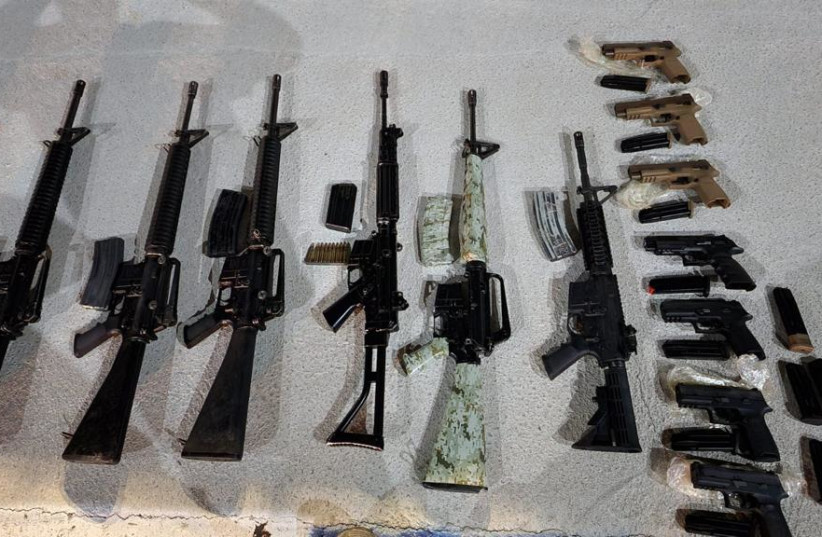There is a serious, ongoing threat to the IDF – and it’s painfully close to home. More than 70,000 bullets and 70 grenades were stolen from a military base in the Golan Heights over the weekend.
The initial probe found that some 70,000 5.56-mm. bullets and about 70 grenades designed to be used for M-203 grenade launchers were stolen in an overnight theft from Tznobar, a major IDF base near Katzrin. It was the second such recent major weapons heist from an IDF base. In October, 30,000 bullets were stolen from ammunition warehouses in the Sde Teiman base in the South.
These aren’t isolated cases, there is an ongoing problem of weapons theft. Although the thefts have been particularly evident in the Negev, weapons and ammunition have been stolen from bases in other areas, including the Jordan Valley, and other places in the North.
IDF weapons theft plagues Israel
As The Jerusalem Post’s defense reporter Anna Ahronheim noted, many of the weapons stolen in recent years were taken by soldiers collaborating with civilian contractors working on the bases, who not only had access to bases but knew where the weapons were stored. These were deliberate, well-planned and well-executed heists.

The major fear is that the stolen weapons – which reportedly have included machine guns, grenades, anti-tank rockets, night-vision equipment and explosives – will end up in the hands of criminal organizations or terror groups in the West Bank.
An intensive initial investigation of Friday night’s incident by military police and the Shin Bet (Israel’s Security Agency) led to the speedy arrest of several suspects from the Arab Israeli town of Tuba-Zanghariya, although the stolen ammunition was not recovered.
There was heavy censorship on details of the case, but reportedly the initial investigation indicates that the ammunition was targeted for use by criminal elements rather than terrorism. This, however, is no consolation. Such quantities of weapons and ammunition could arm entire militias. There is already a problem with armed protection rackets, particularly in the Arab sector.
There has been an increase in violent deaths in the Arab community, which can only be fueled with the presence of more ammunition.
Similarly, when residents of the South complain of Bedouin shooting in the air from vehicles – and even sharing videos of them doing it on TikTok – this is a sign of the lack of civil control by the police and Israeli authorities.
As Ahronheim noted, Islamic State-inspired terrorists who killed two Border Police officers in Hadera in March had automatic weapons and almost a thousand bullets that were stolen IDF property. The line distinguishing crime from terrorism becomes blurred when it comes to the sale of stolen weapons.
The military, well aware of the problem of the break-ins, drew up new regulations for securing armories that it said led to a significant decrease in the theft of weapons from bases and soldiers’ homes. And the IDF allocated more than NIS 15 million into additional security measures for on-base armories. But this is obviously not enough.
The increased awareness of the problem of weapons thefts has even led to an absurd situation: Combat soldiers on a week’s furlough are not allowed to take their weapons home with them, because they might be stolen – although the same soldiers are able to take their weapons home for Shabbat. The Police has called on anyone who has a weapon to carry it as an extra level of protection of the public during the wave of terrorism.
Clearly, the problem is not at the level of the soldier on well-earned leave. It is scandalous that the IDF is not able to protect its own bases. It is also extremely worrying.
This puts soldiers at risk as well as the general public. In addition, it indicates a lack of deterrence which is also reflected in lawlessness in the Negev and elsewhere.
It is essential that incoming IDF chief of staff Herzi Halevi, the new deputy chief of staff Amir Baram and whoever is appointed defense minister must make the subject of fighting thefts from military bases a high-priority issue.
The well-organized heist of IDF weapons from military bases must be stopped. The IDF, which is responsible for protecting the country’s borders, must prove that it can protect its own bases.
